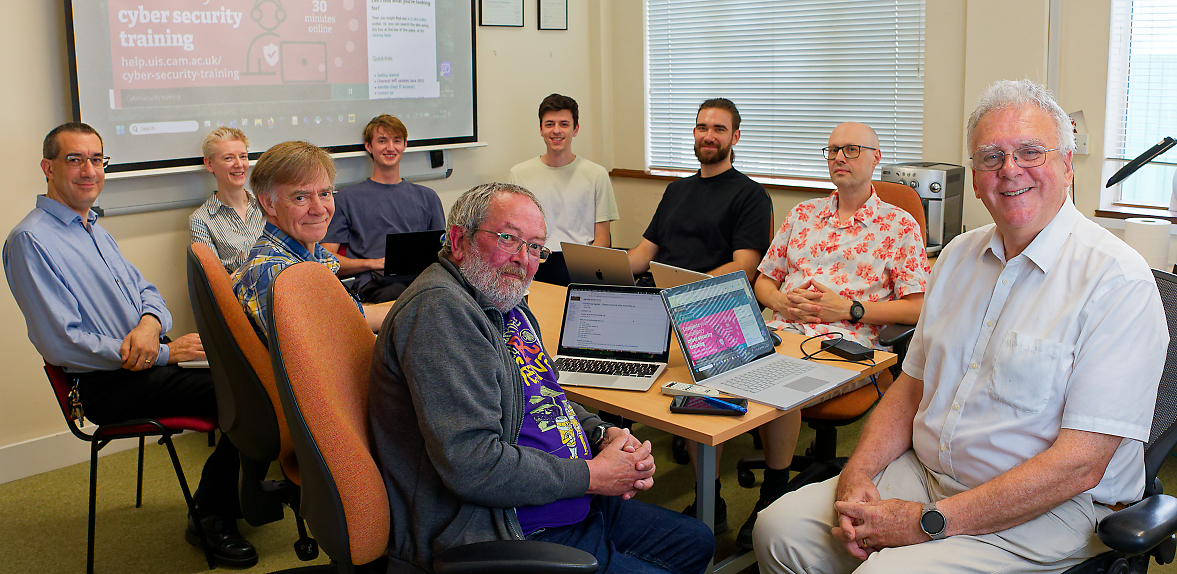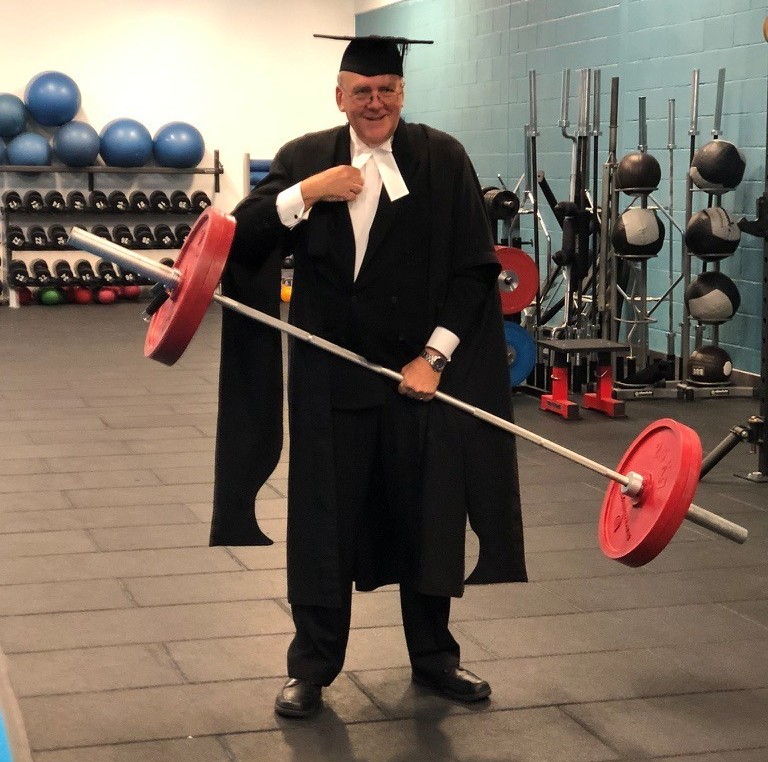
Tim joined our IT department in 2008 where one of his first initiatives was creating a ticketing system to avoid the problem of IT staff duplicating work on the same job. Now they get 14-17 ticket requests a day on average.
Tim says: “My advice to anyone in this role is to listen. Really understand what is frustrating users and that’s how to find the best solutions. In fact, one of the first problems I encountered was in my job interview: researchers asked me why they couldn’t access their data from home.”
Another of Tim’s early projects was installing the VPN service to solve this problem. Now, it’s almost unimaginable to think of being unable to access the department’s servers remotely. When asked what keeps him going, he said: “my amazing team. They’re really great people and we want to pull all our efforts in the same direction.”
Academic Background and GSK
Tim completed his first PhD in theoretical chemistry at the University of Kent in 1982 then went on to do a postdoc at the University of Oxford. Afterwards, he spent three years researching at Glaxo, now Glaxo Smith Kline (GSK). When the company needed to upgrade their IT infrastructure, Tim was the only person with the appropriate skill and expertise in the company to do it and so transitioned his role into IT support and management. He retired from GSK 24 years later.
Yusuf Hamied Department of Chemistry

Dr Timothy Dickens with the IT Team.
CW from Dr Timothy Dickens, Dave Pratt, Dr Owen Johnson, Dr Frank Lee, Dr Catherine Pitt, Sam Passey, Thomas Walters, Sebastian Kmiec, Dr Adam Thorn.
After hitting the academic pause button Tim explored returning to research and, while investigating our Department, found they needed someone in IT. Tim has enjoyed the best of both IT and research at the Department since he joined in 2008.
The world of IT is unrecognisable from seventeen years ago and Tim has overseen many monumental changes in our laboratories.
He says: “The biggest change I’ve noticed, in the world of IT and research, is that our access to data is different beyond recognition since I started. Accessibility to information has transformed the way we search for literature, the quantities of data we can consolidate and how we organise it. For example, we used to use floppy disks to install software where now we download it from a website in just a few clicks.”
In mentioning some other projects he has overseen, Tim mentioned three IT achievements in particular:
- Monitoring over 378,000 events every hour to detect threats to our servers before they affect IT services.
- Building servers that are resilient and replicated so that everything keeps running if the power goes off in one part of the building.
- Creating an administration database that is the main source of data for multiple branches such as finance, equipment inventory, HR and the website.
He says: “My aim is that everything runs invisibly and seamlessly. If you don’t notice the IT department then they are doing a great job!”
Peterhouse

Timothy Dickens when the Proctors were invited to review new University gym facilities. Image by Professor Karen Ottewell.
Alongside his work in the department, Tim also took on a fellowship with Peterhouse College where he teaches chemistry. He’s worn many hats while at Peterhouse, including his time as senior proctor where he had to learn some Latin to kick off graduation ceremonies; Tutor for Postgraduate Admissions; current acting steward; chair of the college IT committee.
He has also published over twenty papers on theoretical chemistry and received his second PhD at the age of 65 from the University of Cambridge in Theoretical Chemistry achieved via Special Regulations on his published work.
Now that he is retiring, his plan is to spend a year on sabbatical with Peterhouse to polish up some research in graphene fragments, go travelling with his wife and to spend more time with his four grandchildren, two of whom live in Finland where his son is on the faculty of the University of Turku and is also a Chemist.

